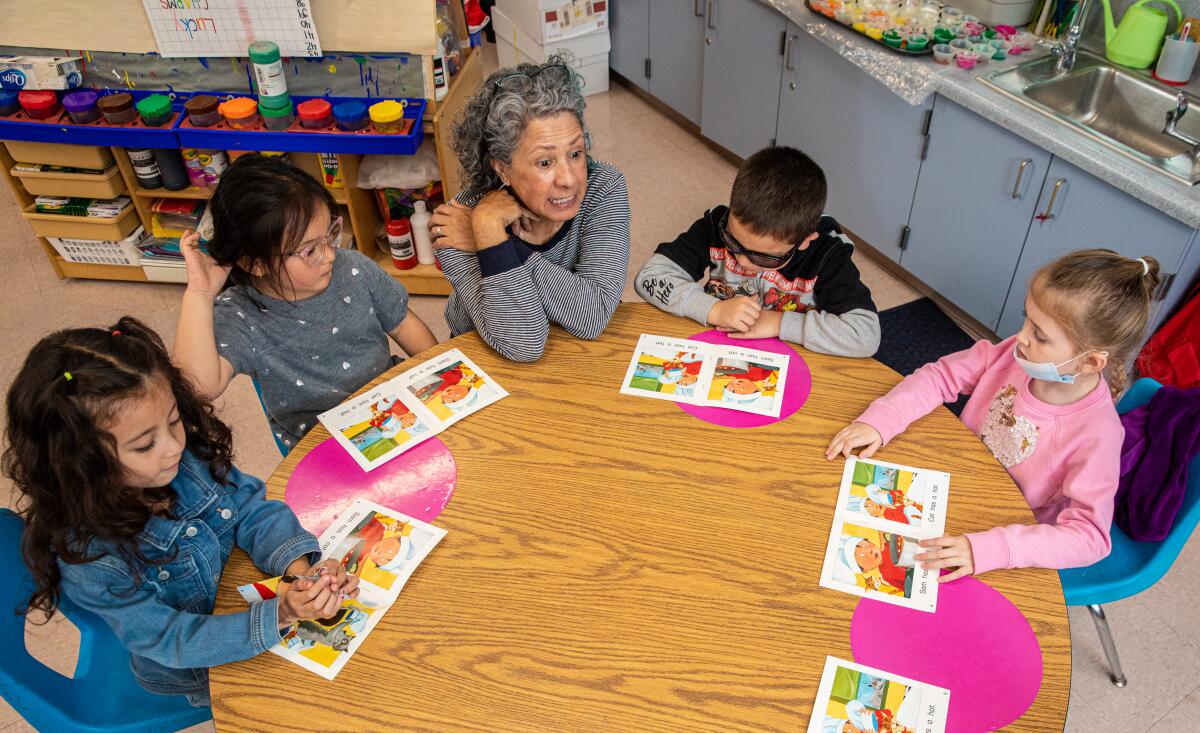These 3 activities can foster your child’s language development before transitional kindergarten

- Share via
Are you familiar with the slogan “Talk, Read, Sing”? These three activities help children create a foundation for oral language, which is essential to reading.
By building oral language, children develop phonemic awareness and learn to notice, think about and work with the individual sounds in spoken words — skills taught and developed in transitional kindergarten.
Reading by 9’s guide to reading readiness. Find expert tips, book recommendations and resources for parents of kids under age 5.
Talk: When your baby coos or gurgles, “converse” with them. Talking to your child helps them connect sounds and meaning, builds vocabulary and fosters understanding of words.
Answer their questions and ask for their opinions, thoughts and feelings. Describe objects and everyday activities. These actions will also boost communication, curiosity and social skills.
Children will also be able to better communicate with others and fully participate in classroom discussions where they will share their feelings, thoughts, opinions and understanding about what they’re learning.
Read: Instill love for books in your child by spending time each day reading with them. I started reading to my baby grandson the day he came home from the hospital.
Reading builds language skills by exposing children to new words. It also helps children learn about the world, which makes learning new subjects easier once they start school. As you read with your child, point to pictures and ask questions. Have them predict what the story might be about or share solutions to problems in the book. Ask them if they find the story relatable.
These conversations foster oral language and set the stage for oral comprehension, mirroring what happens in the classroom.
Sing: Did you know that singing helps children learn about rhymes, rhythm and the cadence of language? Teaching children nursery rhymes, chants and finger-plays expands their vocabulary and helps them build memory, develop listening skills and recognize patterns.
When we as parents nurture oral language skills, as their first and best teacher, we are providing a strong foundation for learning to read and write once they enter school.
This piece is a part of the L.A. Times parent reading guide, A guide to early learning: What to know for reading readiness. Find expert tips, book recommendations and local resources meant to help parents of kids under 5 incorporate reading into a child’s daily life.
